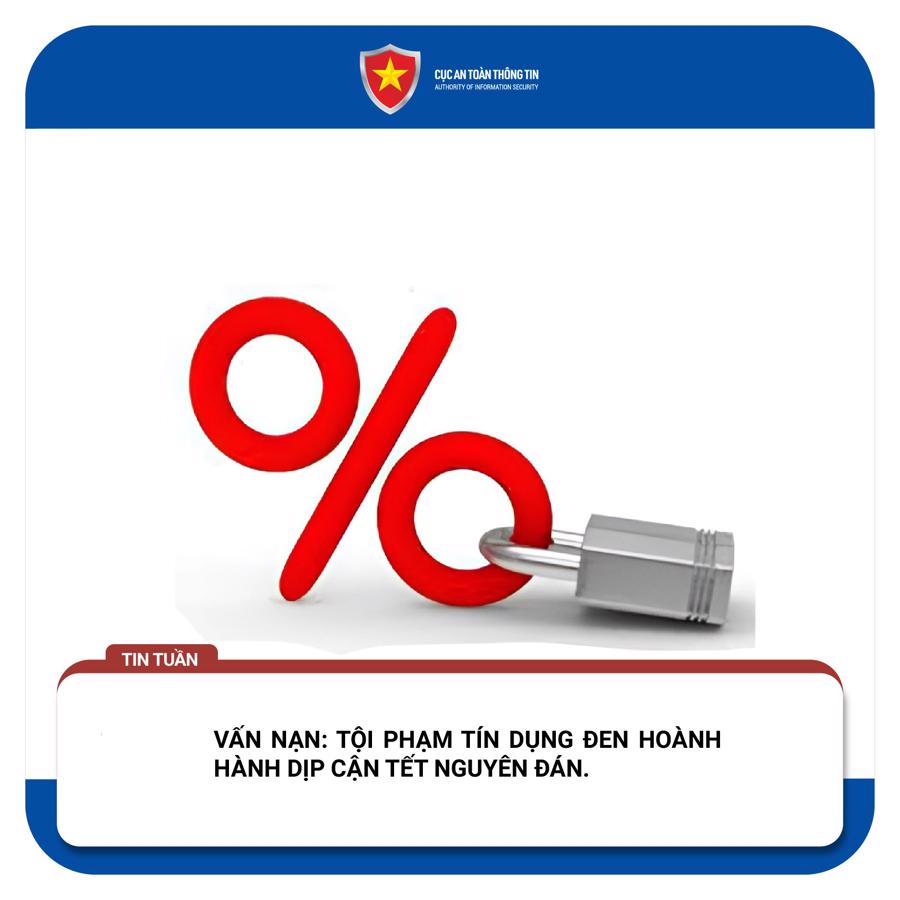The Hanoi Police Department recently reported that Mr. P, a resident of Hoan Kiem District, Hanoi, received a phone call from a person claiming to be an official from the Hàng Bông Ward People’s Committee, Hoan Kiem District, requesting him to integrate an identification code at his home.
Accordingly, the individual requested Mr. P to install a fake Public Service Software. Upon logging in, as instructed, Mr. P scanned the camera to be recognized within the software. The next day, Mr. P discovered that his securities account had been lost, sold, and the funds transferred to another account. The total amount lost was 3 billion Vietnamese Dong.
In response to this situation, the Department of Information Security (Ministry of Information and Communications) advises citizens to be cautious when receiving phone calls from strangers claiming to be government officials, requesting personal information over the phone.
Absolutely do not install software or applications as requested by individuals. If you install fake software, there is a risk that it will take control of your entire phone, and from there, steal information for illegal purposes and seize the victim’s assets. The victim’s messages and phone calls will be controlled by the application, secretly redirected to the server managed by the perpetrator, without appearing on the victim’s phone.
In the event of receiving messages and calls with signs of fraud, citizens should promptly report to the Police to prevent and handle them in accordance with the law.
FACEBOOK ACCOUNT HACKED, YOUNG PEOPLE SEIZE OVER 8 BILLION VND
On January 28, the Cyber Security and High-Tech Crime Prevention Unit of the Quang Binh Provincial Police reported that the unit had coordinated with various task forces, including the Dong Hoi City Police and the Quang Ninh District Police, to successfully combat a case, arresting a group of 7 individuals who specialized in hacking social media accounts to deceive and steal assets.
During the initial investigation, the police identified 7 individuals, including Vo Van Hung, Nguyen Ngoc Hieu, Nguyen Xuan Kien, Nguyen Van Toai, Nguyen Tung Lam (born in 2006), Nguyen Van Sang (born in 2004), Vo Van Anh (born in 2003), all residing in Quang Ninh District, Quang Binh Province, and had started their operations since 2023.
These individuals went online to study illegal methods to seize Facebook accounts of many people across the country. They changed passwords, infiltrated, and used the hacked Facebook accounts to send messages to borrow money and scam victims.

In preparation for committing the crime, the individuals set up about 20 different bank accounts and purchased multiple “junk” bank accounts from online sources to disguise and receive fraudulent money. The estimated total transaction amount in the bank accounts used by the individuals was about 8 billion VND.
The Department of Information Security warns the public to limit sharing personal information on social media to reduce the risk of falling victim to such scams. Users should not share their Facebook login information with anyone or any service. They should be alert to suspicious messages or emails, avoid accessing unfamiliar links to prevent malware installation and data leakage.
“When you need to access Facebook or any related website, please make sure to check the URL to ensure that you are accessing the official Facebook website. Use strong passwords, regularly change passwords, and do not use the same password for multiple accounts. Activating two-factor authentication will enhance security and reduce the risk of fraud. In addition, users should also use malware detection and security software on their personal devices. If you encounter any issues with your Facebook account, please use the official Facebook contact channels for support”, advises the Department of Information Security.
FOREIGN EXCHANGE FRAUD, SEIZURE OF BILLIONS OF DONG FROM DELIVERY PERSONNEL
On January 24, the Criminal Police Department of Da Nang City decided to temporarily arrest Phan Cong Lich (24 years old), residing in Hoa Khanh Nam Ward, Lien Chieu District, to investigate the offense of “Fraudulent appropriation of property”.
Previously, through surveillance and receiving reports from victims, the Criminal Police Department discovered Facebook accounts under the names “Quoc Khang” and “Audrey Truong” showing signs of fraud and asset seizure through illegal currency conversion for foreign tourists. Consequently, they initiated verification measures.

At the police station, the suspect confessed that, in order to commit the crime, he went online and purchased a Telegram account named “Khanh”. Then, he used this account in groups to convert foreign currency to Vietnamese currency and search for customers. When encountering foreign tourists, especially Russian tourists in these groups, the suspect arranged meetings and reached an agreement on the conversion amount.
Subsequently, the suspect used Facebook accounts “Audrey Truong” and “Quoc Khang” to post in the “Da Nang Delivery Personnel” and other local groups to find transaction partners with tourists in need. The delivery personnel received a fee ranging from 80,000 to 300,000 VND per transaction. The condition was that the amount of money exchanged for the tourists had to be provided by the delivery personnel. Upon receiving Vietnamese currency from the delivery personnel, the suspect requested the Russian customer to transfer the money to the bank account of the foreign exchange service provider.
For this purpose, the suspect created 3 loan applications named “Oi Vay”, “Yoloan”, and “Vdong”, offering loans ranging from 5 to 20 million VND with annual interest rates of up to 1,000%. The disbursement was very fast, usually within 1-2 days. In these applications, the suspect asked the victims to access the applications and provide contact lists with the phone numbers of relatives, family members, friends, and identity cards. Then, the application would instantly approve the profile.
The group of suspects divided late-paying customers into groups based on their payment date. The longer the delay, the more threats and pressure they would face. Not only the borrowers, but also all their relatives received constant annoying messages and phone calls. All the money in this criminal network was carried out through collection and disbursement services provided by an intermediary payment gateway in Vietnam. Moreover, the police are investigating money laundering suspicions as thousands of billion VND were circulated abroad.
In response to this situation, the Department of Information Security advises the public to seek reputable loan organizations such as banks or licensed financial companies and absolutely not to provide any personal information or bank account details on unreliable websites or applications.
“When installing any application, especially those related to finance, citizens should carefully consider the permissions requested by the application and read the terms and policies of the application. If any suspicious points are discovered, immediately uninstall the application”, advises the Department of Information Security.
CREDIT CRIME RAMPANT AROUND TET
A loan shark and property seizure ring involved in loans with high interest rates and the appropriation of assets worth over 9,000 billion VND has recently been dismantled by the Criminal Police Department (Ministry of Public Security), the Da Nang Police, and some other localities. This is the result of the peak attack on loan shark crime and the crackdown on crime to protect security and order before Tet.
The borrowers were from all localities across the country, mostly factory workers, laborers, and students who needed urgent money and accepted high-interest rates.
Initially, the police identified a group of ringleaders with Chinese nationality, along with 193 other individuals who set up 10 different companies (9 locations in Ho Chi Minh City and Binh Duong Province) in various fields, including a pawnshop company. This group has provided loans to over 1.3 million people at interest rates ranging from 500 to 1,000% per year. When borrowers fail to repay the interest on time, they are subjected to psychological terror, which also affects their relatives.

The suspects created three loan applications named “Oi Vay”, “Yoloan”, and “Vdong”, offering loans ranging from 5 to 20 million VND with the highest interest rate being 1,000% per year, and the disbursement taking only 1-2 days. In these applications, the borrowers were required to access the applications and provide contact lists with the phone numbers of relatives, family members, friends, and identity cards. Then, the applications would immediately approve the profiles.
The group of suspects divided late-paying customers into groups based on their payment date. The longer the delay, the more threats and heavier pressure they faced. Not only the borrowers, but also all their relatives received constant annoying messages and phone calls. All the transactions in this criminal network were carried out through collection and disbursement services provided by an intermediary payment gateway in Vietnam. Moreover, the police are investigating money laundering suspicions as billions of VND in profits obtained by the suspects have been circulated abroad.
In response to this situation, the Department of Information Security advises the public to contact trusted organizations for loans, such as banks or licensed financial companies, and absolutely not to provide any personal information or bank account details on unreliable websites or applications.
“When installing any application, especially those related to finance, citizens should carefully consider the permissions requested by the application and read the terms and policies of the application. If any suspicious points are discovered, immediately uninstall the application”, advises the Department of Information Security.












